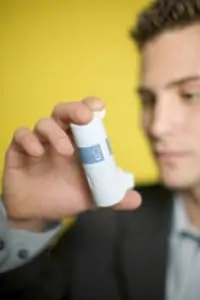
Why Are Asthma Patients at a Higher Risk for Tooth Damage?
Asthma is a chronic lung disease. It can affect children and adults. If you have asthma, you know that the bronchial tubes inside your lungs can become narrower and fill with mucus during an attack. Your muscles around your lungs might also constrict. Not too long ago, asthma patients had no medication to help them. However, now people with asthma can take a variety of medications, both to make sure they don’t have ongoing symptoms, and to help them recover quickly in an emergency.
How Do Asthma Medications Affect Your Teeth?
First, those inhalers you use to treat asthma can irritate the upper portion (or roof) of your mouth. Over time, the area could get infected and spread. It is really important that if you use inhalers regularly, you check the back of your throat. If it starts to get red or irritated, let your doctor know. You might also get thrush or mouth ulcers from inhaler use. If your inhaler causes irritation and thrush–which looks like a white patch on your tongue or throat, your doctor may need to change out your inhaler. Dry mouth is also a problem for people with asthma. That’s because often the medication that people take for asthma or allergies dries your mouth out. This is a problem, because the saliva in your mouth helps to get rid of the bacteria in your mouth. Without your saliva, the bacteria in your mouth could multiply. You are then at a greater risk for tooth decay, gum disease, and even bad breath.
What Can I Do?
There are several steps that you can take to make sure that your mouth stays healthy. First, drink a lot of water. This will help keep your mouth moist. You might also want to use a throat spray with Xylitol, which helps to keep your mouth nice and wet, and aids in the production of saliva. You also need to stay away from products that dry your mouth out as much as possible. If you need to take allergy medication, take it while you are awake, so that your body can replenish your saliva before you go to sleep. If you need more tips, contact our office today!


